Hayati Boyacıoğlu is a Turkish-German cartoonist. His cartoons frequently deal with issues of integration and cultural relations.
Hayati, in the past weeks you posted several cartoons showing couples – most of them very unlikely ones. Where did that come from?
![]() You will see couples anywhere you go – on the subway, at a doctor’s office.. That’s when I start wondering what they do, what they tell each other, how they found each other, why him, why her… There’s hardly any subject more rewarding for a cartoonist than relationships.
You will see couples anywhere you go – on the subway, at a doctor’s office.. That’s when I start wondering what they do, what they tell each other, how they found each other, why him, why her… There’s hardly any subject more rewarding for a cartoonist than relationships.
Was there any particular couple that started the whole thing?
Yes. Back in 1995 I published a book that had a couple on the cover page – a punk and a Turkish woman with a headscarf. I saw those two sitting on a bench at Moritzplatz. In a city like Berlin these kinds of things are actually quite frequent.
You make up names for all of your couples…
Yes, but I only started doing this recently. It adds a certain warmth to a cartoon. I also want to add a common element to my couple drawings: it’s meant to show that we are all human beings, even though some people have a hard time accepting that.
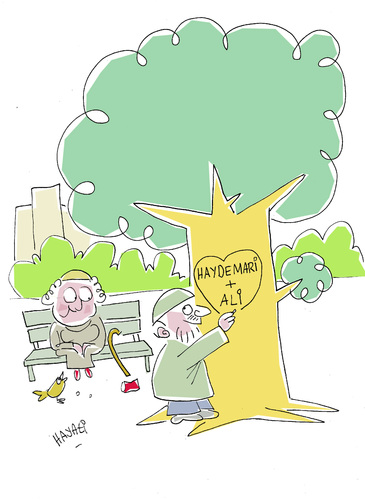 For example, I did this cartoon about “Heidemarie and Ali”. In that one Ali cuts both their names into a tree. These kinds of things just have to happen if you take into account that the first Turkish migrants came to Germany in 1960. It’s well possible that a Turkish man who arrived back then fell in love with a German. But in everyday life you see these things way too rarely.
For example, I did this cartoon about “Heidemarie and Ali”. In that one Ali cuts both their names into a tree. These kinds of things just have to happen if you take into account that the first Turkish migrants came to Germany in 1960. It’s well possible that a Turkish man who arrived back then fell in love with a German. But in everyday life you see these things way too rarely.
You were born in Istanbul and your wife is from Bremerhaven. Does you own experience influence your couple cartoons in any way?
Sure. We have known each other since 1978, when she was 14 and I was 17. I asked her to teach me German… She still does.
You also do political cartoons, say, about famine in Somalia..
There is a kind of scheme behind that. I will draw a number of “bourgeois feelgood cartoons” and then I will do one about starving Somalian children.
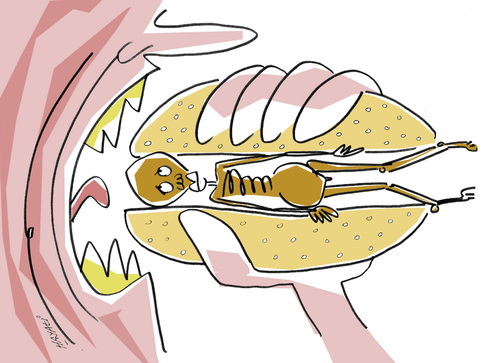 Do you draw it in that order or do you keep back the grisly ones to use them in the proper moment?
Do you draw it in that order or do you keep back the grisly ones to use them in the proper moment?
Sometimes I think about trying to control this.. but there’s no real need to. Life does that by itself. I will draw something about couples switching clothes and all of a sudden my routine is interrupted by a sinking ship with 20 refugees aboard and other people doing nothing. You just have to draw something about that.
Is there any agenda behind your cartoons?
Dario Fo once said that if you want to make people understand something you have to make them laugh. Because that’s when their brains will open up and you can add knowledge.
The problem with toonpool.com is that the audience is composed of artists, of satirists. There’s no need to teach each other. On Facebook, for example, I will get very different reactions to my cartoons.
Several of your political cartoons deal with Turkish issues, for example with the recent elections. Can you tell a bit about Turkish cartoons in general?
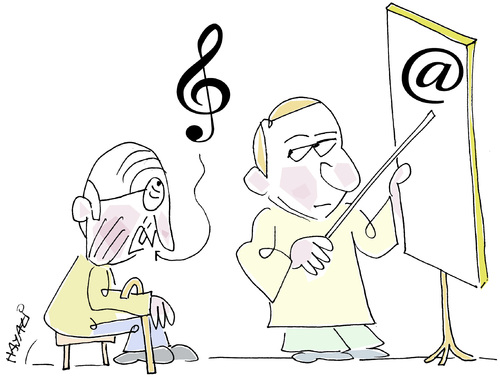 In Turkey, the newspapers’ headquarters are mostly based in Istanbul. Except for about four pages of the international issues, everything’s produced there.
In Turkey, the newspapers’ headquarters are mostly based in Istanbul. Except for about four pages of the international issues, everything’s produced there.
So, those international issues will hardly produce their own editorial cartoons. Perhaps because it’s hard to control editorial cartoons. In effect, most editorial cartoons deal with Istanbul issues and hardly ever with things happening anywhere else.
Are there any differences to German cartoons when it comes to humor?
Yes. There are basically two types. The first one does not really exist in Germany. It’s satirical magazines that are very cheap. Examples would be Leman or the now-defunct Gırgır.
German Titanic or Eulenspiegel cost 4 Euros each and, if you want to understand them you have to be well-read, know a thing or two about satire, etc. It’s not for everyone.
The Turkish magazines cost something like 25 cents and they are not too “high-brow”. Satire should be folksy and accessible for everyone – populist in a good way. I am trying to keep things simple, even though it doesn’t always work. Maybe that’s a point where I’m influenced by Germany.
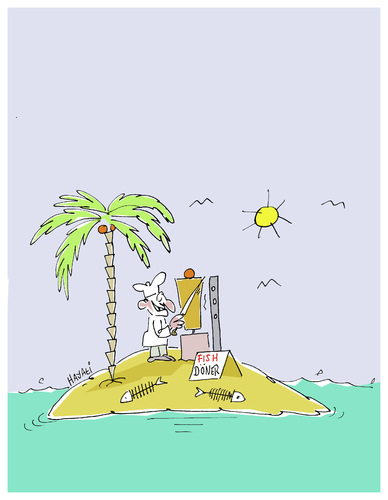 Isn’t there a danger that populist cartoons can very quickly turn to propaganda?
Isn’t there a danger that populist cartoons can very quickly turn to propaganda?
I don’t think so. Readers would notice this very quickly. And they will punish magazines by simply not buying them the following week.
How about the second type of cartoons?
Those are more artistic and don’t use captions. That’s one thing that sometimes poses problems for cartoonists from Yugoslavia, Romania, Bulgaria, and the like. Germans always use captions. Even on toonpool.com you need to fill in a title but, you know, the drawings are supposed to speak for themselves.
Where is this type usually published?
Artists will publish books or display them at exhibitions. There were a couple of more sophisticated satire magazines, but those never really worked.
Are you still in contact with cartoonists from Turkey?
Yes, I am. Thanks to toonpool.com, among others. I started drawing back in school, when Gırgır was still around [editor's note: Gırgır was originally published between 1972 and 1989].
I met a lot of like-minded people then. Some of them – like Erdogan Karayel - I met again in Germany. Others I found online. And, of course, I met a lot of new people.
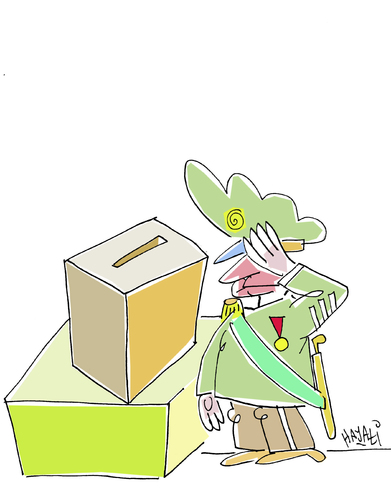 What are the main differences in opinion between “exiles” and artists back in Turkey?
What are the main differences in opinion between “exiles” and artists back in Turkey?
It always depends on how long you have been abroad. If you left only two or three years ago you can live here as you would have back in Turkey. You don’t really speak the language and you can stay at home and watch Turkish television. If you have been here for 20 or 30 years, though, if you keep your eyes open, you will change.
Which of your own attitudes, would you say, have changed?
I see some things differently. Some things that would be taboo over there, I don’t really mind anymore. When the Turkish military’s chiefs of staff resigned, mine was one of very few cartoons on this topic.. and it applauded the fact that they gave in to the power of the people. I hardly got any reactions on that one from Turkey.
Thanks for your time!
Paul Hellmich (Twitter/Facebook)
© toonpool.comTags: couples, Hayati Boyacıoğlu, integration, love, turkey
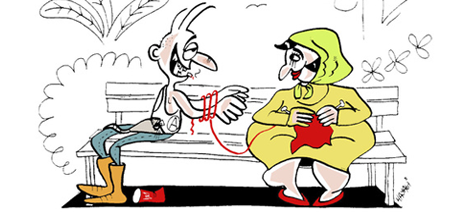
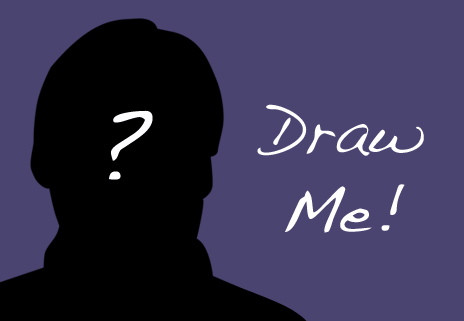
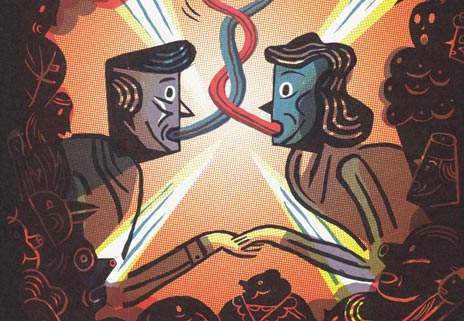
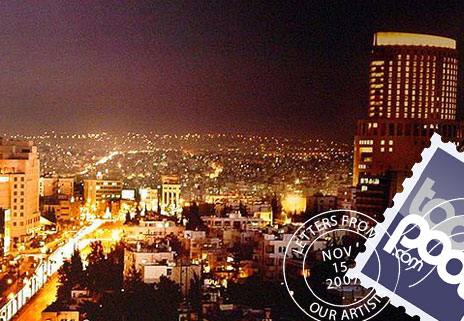
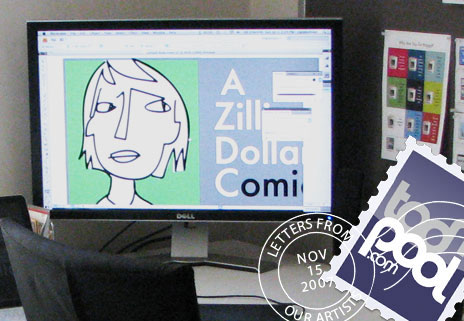
♪*Master_Friend Hayati !?…a man of honor, a relentlessly cartoonist always present at the forefront, a sharp mind and analytical, a simple design, modern and pleasant = result, a personal recipe Made By Hayati…aparent simple but real the BEST…and yes…1 good and caring friend…sorry for too few words, but they are sincere and come from the heart…All the best dear Hayati Boyacıoğlu…Congratulation and Succes for your all works!!!…^v^
The master who is;
drawing, following, couraging, supporting,advicing,…
“please take care and stay caring over us…”
ulusal anlamda uluslararası bütünleşmiş ve entegrasyonunu en iyi şekilde yansıtan bir sanatçıdır hayati boyacıoğlu.onun biz türk çizerlere açtığı yolda daha iyiyi ve lumlu örnekleri kazandırması yadsınamaz.onunla ifthar ediyoruz.iyi ki seni tanıdım.
http://www.donquichotte.org/content/blogsection/1/153/
congratulations master Hayati !..
tebrikler !..Felicitations !..
I believe that to be living in Germany for a long time has added extraordinary features on his already great personal features! Even the ordinary talks with Hayati always have been instructive for me. I’m truly honored and proud to meet a great artist and great friend like him.
Wonderful interview!! Congrats Hayati and Paul!!
BTW: Gırgır has become 3rd great humor magazine of Europe in 80s by reaching 1 million sales (weekly).
hallo hayati ! ich gratuliere auch zu dem interessanten interview.
Interessant, dass der Herr manche seiner Cartoons als “bourgeois feelgood cartoons” bezeichnet. Viele auch der besten politischen Cartoonisten auf Toonpool scheinen nicht wirklich Aufklärung im Sinn zu haben, sondern rennen nur der Sau hinterher, die aktuell durchs Dorf getrieben wird. Drum wird die Kritik selten grundsätzlich. Wer grundsätzlich wird, wird zumindest in Deutschland, nicht gedruckt. Meinungsfreiheit wird in Deutschland mit materiellen Mitteln beschnitten. Das funktiioniert viel subtiler, als es jede offizielle Diktatur könnte.
@Izo:
Ich weiß natürlich nicht, was du mit “grundsätzlicher Kritik” meinst (kannst du einen link posten?)… Persönlich habe ich das Problem, dass Cartoons in denen ich glaube, dass “grundsätzliche Kritik” geübt werden soll überwiegend den Witz außen vor lassen und eher Agitprop als alles andere sind.
Zur Information: Möglicherweise ist die “Klassenrhetorik” durch meine Übersetzung verstärkt worden. Auf Deutsch hat Hayati von “idyllische[n] Wohlstandsbürgertum[cartoons]” gesprochen
Witz ist ja ohnehin sehr subjektiv, wie auch die Herangehensweise, dass Cartoons immer im ursprünglichen Sinne witzig sein müssen oder vielleicht nicht sogar mal glatt das Gegenteil. Grundsätzlich wird natürlich eher, wer zum Beispiel das Verhältnis des Kapitals zum Krieg thematisiert oder tatsächlich Herrschaftsverhältnisse anzweifelt. Solche Cartoons kommen dann doch eher aus ärmeren Ländern. Hierzulande beschränkt man sich lieber aufs Hofnarrentum und beisst nicht in die Hand, die füttert.
Congrats dear master:)))
@Izo
Paul hat vollkommen Recht! Das Gruseligste, was ich mir vorstellen kann, sind oberlehrerhaft-humorlose Agitprop-Cartoons im Stile weimarer-republikanischer Wahlplakate oder verbissener alt-68er Intellektueller wie Rudi Dutschke (die übrigens heute zumeist bestens gepamperte Beamte oder EU-Abgeordnete im Dienste des Staates sind, gegen den sie seinerzeit vehement protestiert haben).
Da ich Hayati zufälligerweise seit 1995 persönlich kenne, weiß ich auch, dass er als unabhängiger Freiberufler keine “Hand, die ihn füttert” hat, ganz im Gegensatz zu links-alternativen, saturierten Heuchlern wie Joschka Fischer, Daniel Cohn-Bendit und wie sie alle heißen. Das sind alles vulgärmarxistische Stammtischklischees!
Außerdem ist grundsätzliche Fundamentalkritik an den repressiv-autokratischen Herrschaftsverhältnissen im bekannten Universum incl. aller theoretisch denkbaren Paralleluniversen einfach nicht sein Thema.
Es ging gar nicht um Hayati. Hast Du, beschäftigt mit Deinem gruselig-reaktionären Achgut-Agitprop-Kommentar, gar nicht gecheckt was? Einmal mit dem Glöckchen gebimmelt, schon Schaum vorm Mund! Haha! Natürlich haben auch Freiberufliche Cartoonisten Hände, die sie füttern. In Deutschland sind das meist systembewahrende Verlage, die kein Interesse an aufgeklärten, mündigen Bürgern haben.
@Izo
Hat keinen Sinn, mit Leuten zu diskutieren, die die Weisheit mit Löffeln gefressen haben und grundsätzlich alles besser wissen, weil sie sich der systemkritischen, aufgeklärten intellektuellen Elite zugehörig fühlen. Habe diese Spezies aus meinen Studentenzeit noch in denkbar schlechter Erinnerung: Bis zum Morgengrauen gesoffen und dabei die Welt in allen politischen, sozialen & ökonomischen Details analysiert, danach bis zum Nachmittag gepennt, während die unmündigen & unwissenden Spießer zur Arbeit gegangen sind.
Jaaa! Lass ihn raus den Frust! All die angestauten Aggressionen, weil die Coolen die hübschen Mädchen gekriegt haben und Du nur die dicken, wenn überhaupt…
XD
hehehe
@Izo & Izmir
So, jetzt da die Stereotypen raus sind: Izo, ich wäre immer noch an einem Cartoonbeispiel interessiert. Ich finde deine Formulierung, dass “Cartoons [nicht] immer im ursprünglichen Sinne witzig sein müssen” ein bisschen schwammig.
Ich würde Dir zustimmen, dass eine “Umpfta”-Pointe nicht zwingend nötig ist, finde aber schon, dass ein Cartoon erst durch ein überraschendes Bild, eine überraschende Einsicht oder eine überraschende Wendung zum Cartoon wird.
Viele der Cartoons, die ich von Toonpool zu Themen wie dem Verhältnis von Kapital und Krieg, etc. kenne reiten leider (wie ihr gerade) auf stereotypen Bildern rum und sind alles andere als überraschend. Gegenbeispiele fände ich wirklich interessant.
.. und vor allem: wie gehen interessantere politische Cartoons mit Hayatis Forderung nach “Volksnähe” und Simplizität in Karikature zusammen?
@Paul: Ich muss mich wieder meiner Arbeit widmen. Ich bin nämlich als freiberuflicher Ingenieur im Dienste des Monopolkapitals tätig.
Was mein zorniger Vorkommentator nicht mitbekommen hat, ist, dass ich Hayati gar nicht kritisiert habe. Ich stimme ihm sogar zu. Am ödesten sind Cartoons, die witzig sein sollen, weil sie nicht witzig sind, aber zum Beispiel ein Gemälde als Vorlage haben, damit Cartoonist und manch Betrachter sich den Bauch pinseln können, weil sie ja so gebildet sind. Hätte ich Zeit zu suchen, würde ich bestimmt ein paar Cartoons finden, die mit gängigen Formeln brechen, hab ich aber nicht. Viele Cartoons, bei denen ein Zeichner eindeutig Stellung nimmt für oder gegen etwas Konkretes, finden sich aber auch nicht auf Toonpool, gerade nicht unter den politischen Cartoons. Und wenn, gehen die Stellungnahmen konform, mit dem medialen Mainstream, der uns ohnehin den ganzen Tag vorgeblasen wird. Wohlgemerkt – ich werfe das niemandem vor, ich stelle nur fest.
Dass er Ingenieur ist, musste der Izmir aber noch schnell schreiben, damit wir auch wissen, dass er ein ganz Schlauer ist. Natürlich hat er nicht aufgegeben, weil ihm nichts mehr einfällt, sondern, weil er so tierisch beschäftigt ist. Ganz ganz wichtig…
Hayati kardes sen bir tanesin.
Devam et ve bizi mutlu et.
Selamlar
Fareus
Really interesting and enjoyable interview. Excellent, well done )
)
@Paul
Bitteschön.
Nicht lustig. Soll auch gar nicht lustig sein und ist trotzdem ein Cartoon.
Ein guter noch dazu.
http://www.toonpool.com/cartoons/Loriot_140771
@Izo: Stimmt! Zu Deinem Schwachfug fällt mir wirklich nix mehr ein.
Heute ist übrigens Loriot gestorben, der sich – wie Hayati – primär mit den Widrigkeiten zwischenmenschlicher Beziehungen auseinandergesetzt hat. Nach Deiner Definition kann man dessen Lebenswerk ja auch in die Tonne treten, weil es so “unpolitisch” ist und sich nicht mit grundsätzlicher Systemkritik befasst.
@ Izo
Ja, den finde ich auch gut. Hat ja eben – auch wenn er nicht in dem Sinne lustig ist – die Überraschung, die Umdeutung des Satzes aus dem Nudelsketch. Erl ist eh einer der wenigen die unpeinliche Kondolenzcartoons können.
Nur so richtig große Systemkritik kommt darin nicht vor. Davon hattest Du ja gestern geschrieben. Haste da nicht was (auch außerhalb von Tp – von mir aus Indymedia oder so)
@Paul
Zwei verschiedene Aspekte in einem Kommentar. Es tut mir leid.
@Dingens
Er schnallt es immer noch nicht.
Du lese.
Ich gar nicht Hayati kritisiert.
In die Gegenteil.
Du
merke
mal
was.
While Iwas reading the interview , I enjoyed. It was good to learn the story of couples Thanks for it.Congrats!
Thanks for it.Congrats!
“Germans always use captions”. i doubt that.
Ich freue mie, dass durch dieses Interview so eine interresante
Diskussion zustande gekommen ist. Ich meinte bei unserem Gespraech in
der Tat wörtlich die Wohlfühlgesellschaft, die ich sehr gern karikiere
und irgendwann wieder mit einer etwas haerteren Zeichnung das Lachen der
leser überraschend im Hals stecken lassen möchte. Ich bin allerdings
nicht Izos Meinung, dass in Deutschland sehr selten zeichnerisch
grundsaetzlich kaum Kritik zugelassen wird. Ich denke eher, dass die
Karikaturisten eine Art Autozensur praktizisieren oder aber es an
richtigen print Platformen leider mangelt. Ohne in Agitprop zu verfallen
humorvoll, künstlerisch wertvoll sowie aufrichtig kritisch zu sein, ist
schwieriges Unterfangen. Für solche Produkte ein Markt und vor allem
Leser oder Interresierte zu finden ist hier sowie wo anderes ist
wirklich ein Problem. Die Lösung viele Zeichners ist dann entweder
politisch oder künstlerisch wertvoll zu agieren… Meine Beobachtung
ist, dass die Karikaturkunst von Tag zu Tag von von seinem Biss verliert
und mich an Graffiti und Werbung erinnert. Und einige Zeichnungen sind
zu Wandschmuck etabliert.
I am pleased that this interview created such an interessting discussion. In the interview I meant in fact the so called “wellness-society”, which I love to caricature to shock them in the next moment by drawing something harder to stop the laughter. But I am not in Izos opinion that in Germany is no criticism whitin the cartoons. My point of view is that the Artists use a selfsensorship or aren’t able to find the right place to publish their work.
To be funny as well as being real and political critical, plus finding an audience for your work is a hard task. In fact the most common way to overcome this is to be funny or to be critical…
My impression is that the cartoons as an art form loose their bite and sharpness everyday more and reminds me of Grafftiti or some Commercial spots. Some cartoons aren´t more than just jewelry without soul…
Sincerly yours Hayati
Hayati, wir stimmen weitgehend überein. Autozensur ist in der Tat der passende Begriff. Die kommt aber eben daher, dass in Deutschland kein Zeichner, der ab und zu die Oberfläche verlässt, ein Bein auf den Boden kriegt. In der Musik ist es ähnlich. Oder hat manv on “Geier Sturzflug” nach ihrem ersten Hit nochmal was gehört? In der Wirtschaft gibt es keine Demokratie. Der reflexartige Agitprop-Vorwurf ist auch bezeichnend, unterstellt er doch, dass man, in Wirklichkeit für irgendwelche Interessensgemeinschaften wirbt.
Allerdings muss man natürlich auch nicht davon ausgehen, dass nun jeder Cartoonist politische Bildung oder gar Klassenbewusstsein hätte, im Gegenteil gibt es durchaus welche, die dagegen anzeichnen. Wohlgemerkt, ich werfe niemandem etwas vor, ih stelle nur fest.
hayati abiyi yürekten tebrik ediyorum toplum sorunlarına yöneldiği için cesur çizgileriyle bize devamlı ışık olacaktır
Tebrik ediyorum.
“Allerdings muss man natürlich auch nicht davon ausgehen, dass nun jeder Cartoonist politische Bildung oder gar Klassenbewusstsein hätte….”
Ja, alle sind blöd, ungebildet, politisch indifferent, desinteressiert & konformistisch außer dem selbsternannten Oberdurchblicker Izo!!
Es ist ja nicht so, dass jemand nach Deiner Meinung gefragt hätte. Du hast nicht verstanden was ich geschrieben habe, dann rumgeblubbert , ohne über reaktionäres Stammtisch-Niveau hinaus zu kommen. Und auch jetzt argumentierst Du nicht.
Also können wir an dieser Stelle auch enden.
Congratulations, Master Hayati for this interview and for what you represent as an artist in the world, wherever you find it on this planet!
I am honored that I know your works!
Greetings from Romania!
Q.K.